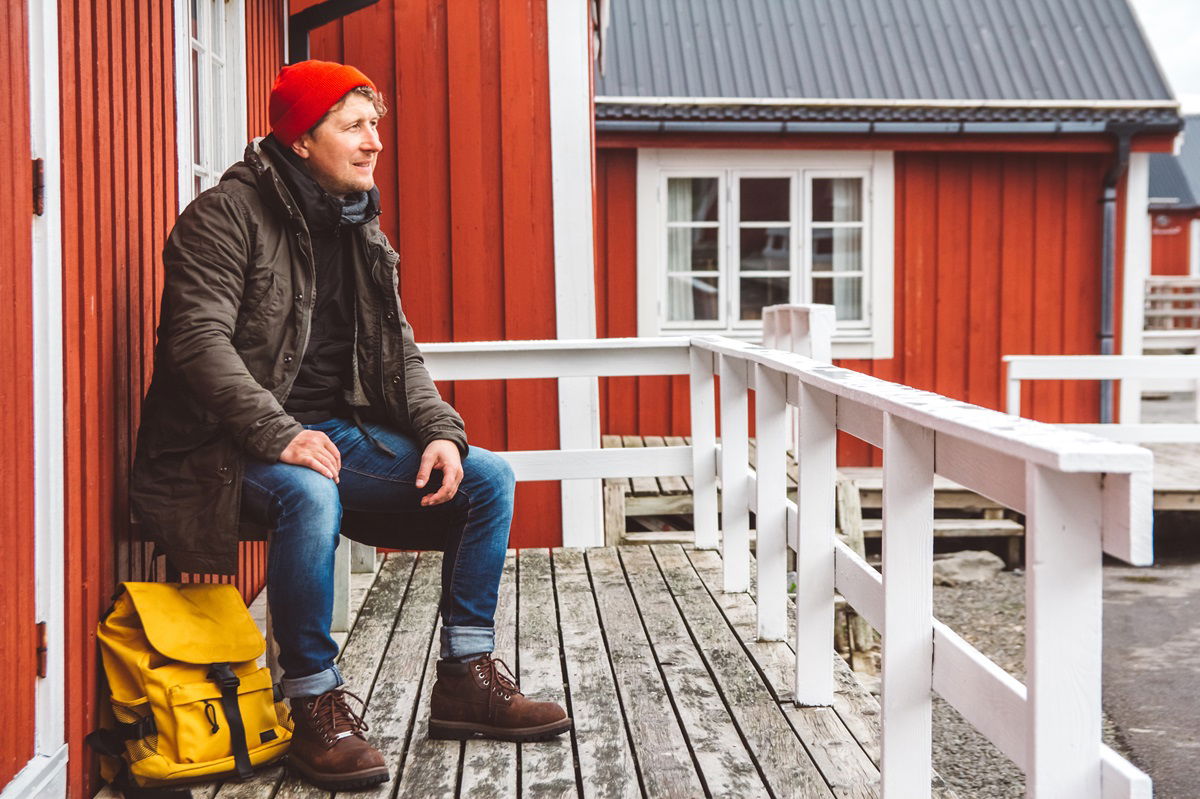
Living in Portugal
Are you interested in learning more about life in Portugal because you want to travel there or even emigrate? Portugal is a fascinating country on the Atlantic Ocean that boasts breathtaking nature and great quality of life. The mild temperatures all year round are a particular enticement. Learn more about living in Portugal, the infrastructure, health and education systems and further aspects in our article.
General information
Portugal is located in the west of the Iberian Peninsula on the Atlantic Ocean and is surrounded by Spain. Portugal also includes the archipelagos of the Azores and Madeira. The country covers 92,152 square kilometres and has 10.5 million inhabitants. This “pearl of the Atlantic” is divided into 18 districts and two autonomous regions. Together with Spain, Portugal joined the European Communities (EC), which later became the European Union, way back in 1986. The country is also a semi-presidential republic with the president as head of state and the prime minister as head of government. The official language is Portuguese.
Nature and climate
The city of Porto is located in northern Portugal. This part of the country is relatively mountainous, but there are also valleys where wine is grown, such as the Douro Valley, which is known for its port wine.
The highest mountain range in Portugal stretches through central Portugal: the Serra da Estrela. It is also home to the cities of Coimbra, Aveiro and Leiria. The capital, Lisbon, lies south of central Portugal, on the west coast.
Southern Portugal is flatter than the rest of the country. The Algarve is also in the south. It is known for breathtaking coastal landscapes with rocky cliffs and beautiful sandy beaches.
The two island regions of Portugal are both located in the Atlantic Ocean but are nevertheless quite distant from each other. The Azores are located in the middle of the Atlantic Ocean off the coast of Portugal. Madeira and its islands lie off the coast of Morocco. The Azores are a volcanic archipelago that is also home to the highest mountain in Portugal. Madeira is known for its scenic cliffs and mountains.
The climate in the north of Portugal is humid and somewhat cooler. In central and southern Portugal, on the other hand, temperatures are higher and a dry climate prevails. The Portuguese islands are characterised by a subtropical climate with mild temperatures all year round.
Leisure activities in Portugal
The country’s breathtaking nature, but also its culture, are an invitation to engage in many different activities – be it in the cities, on the coasts, at the beaches or in the mountains.
Exploring the cities
Explore Lisbon on the famous yellow tram, drive on it to the historic districts of Alfama and Bairro Alto and see the Ponte 25 de Abril. But Porto, the city of port wine, also has a lot to offer. Take part in a tasting of the famous Port wines or stroll along the Ribeira waterfront. The “Livraria Lello” in Porto is probably one of the most beautiful and impressive bookshops in the world.
Nature and outdoor activities
Are you into outdoor activities? How about hiking in the Serra da Estrela with breathtaking hiking trails. Portugal is also perfect for surfing – be it as a beginner, advanced surfer or a pro. The Costa Vicentina has fantastic surfing beaches. You can go swimming in beautiful nature in Cascais e Estoril, near Lisbon, or in the Algarve.
Are you in the Azores or Madeira? Dolphin or whale watching in the Azores certainly offers a unique glimpse into the natural world. And on a day tour in Madeira, you can take a levada hike through lush forests and breathtaking landscapes.
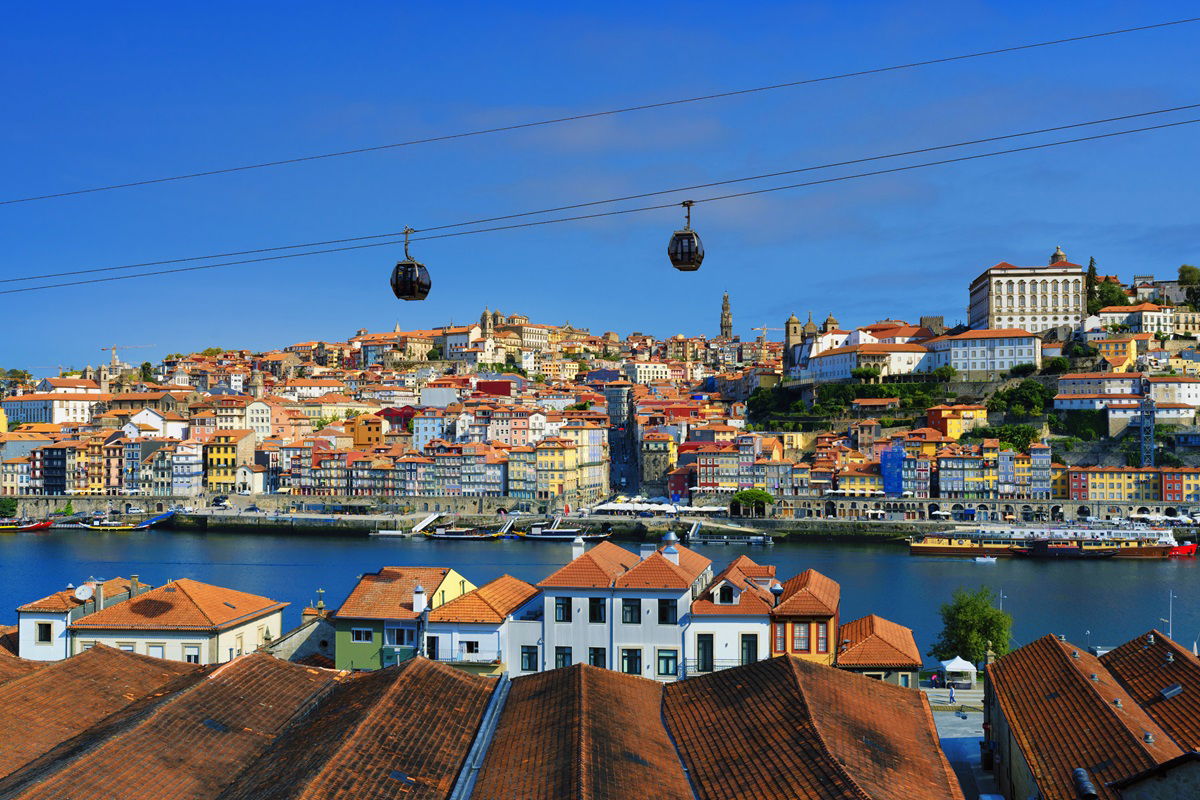
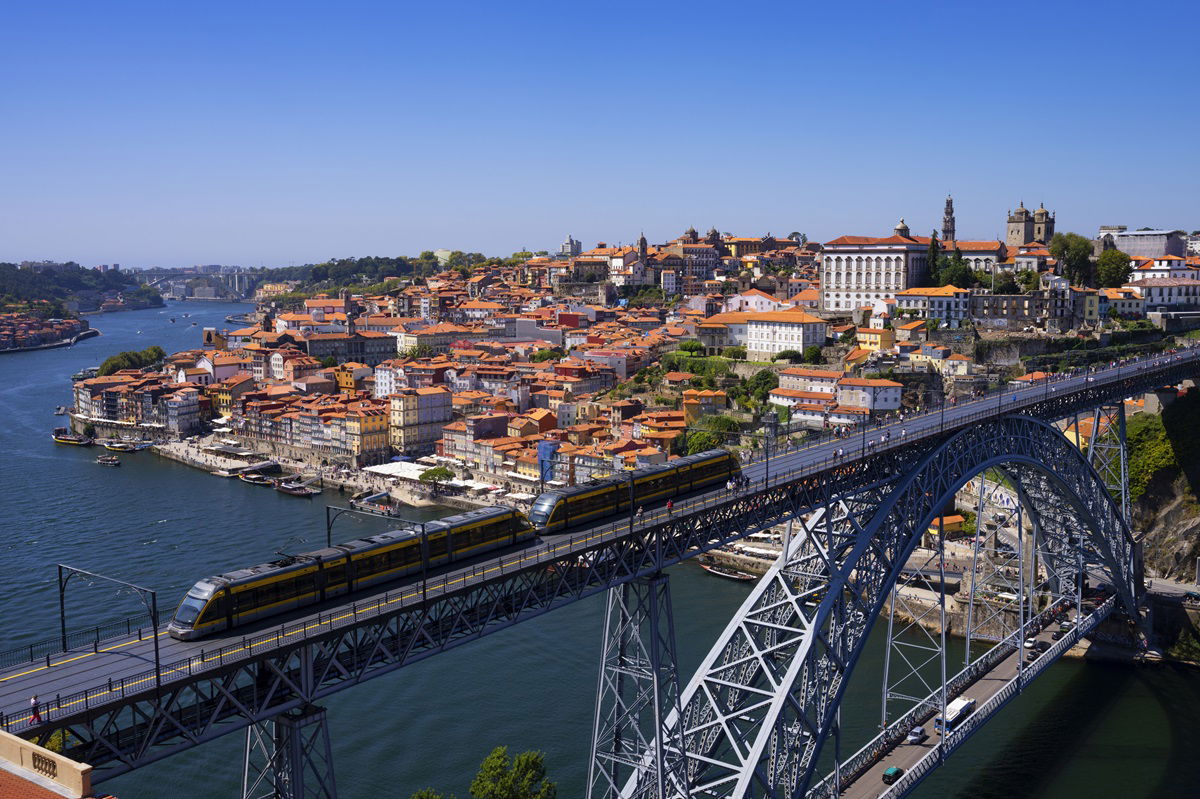

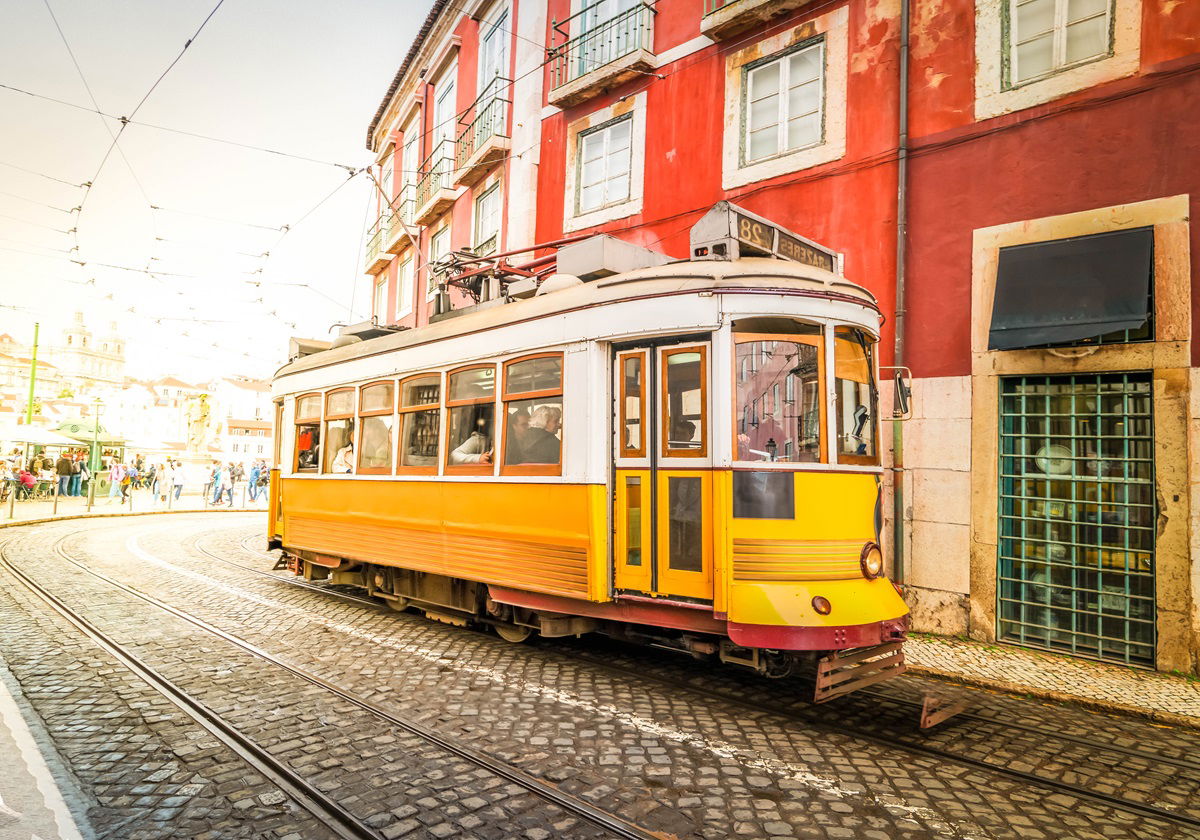
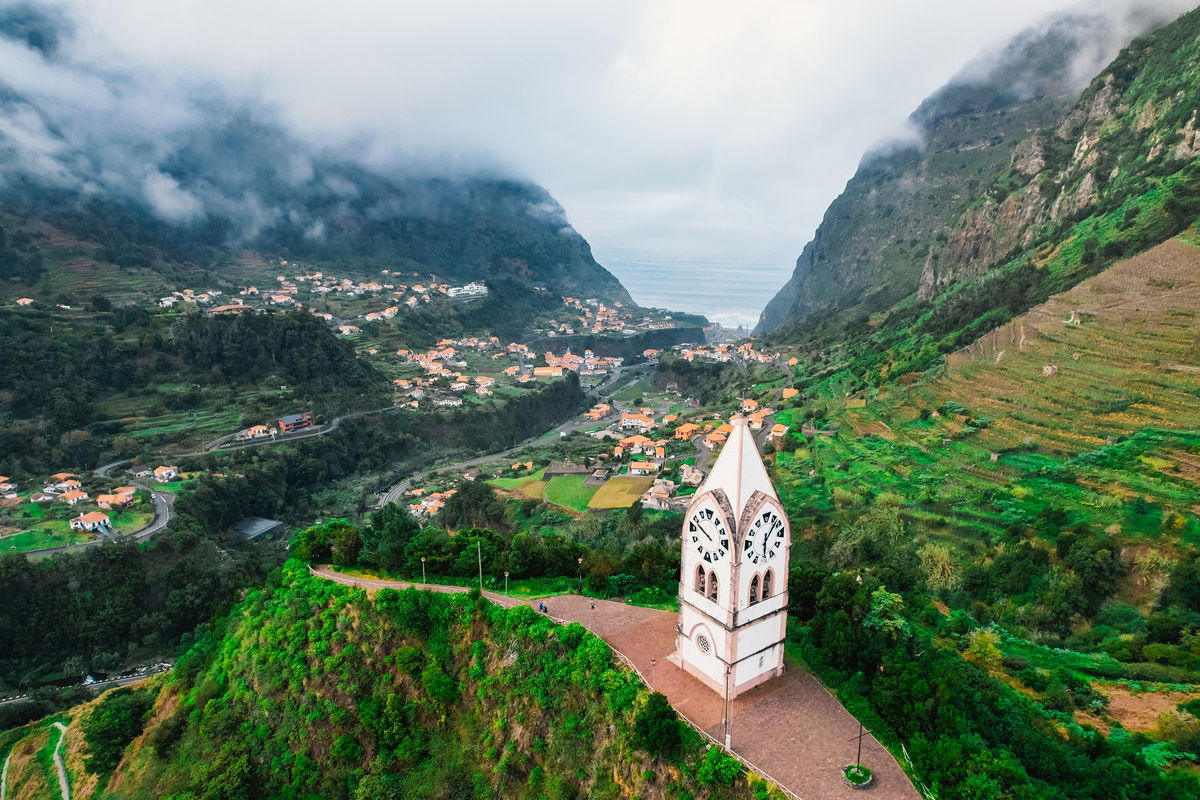
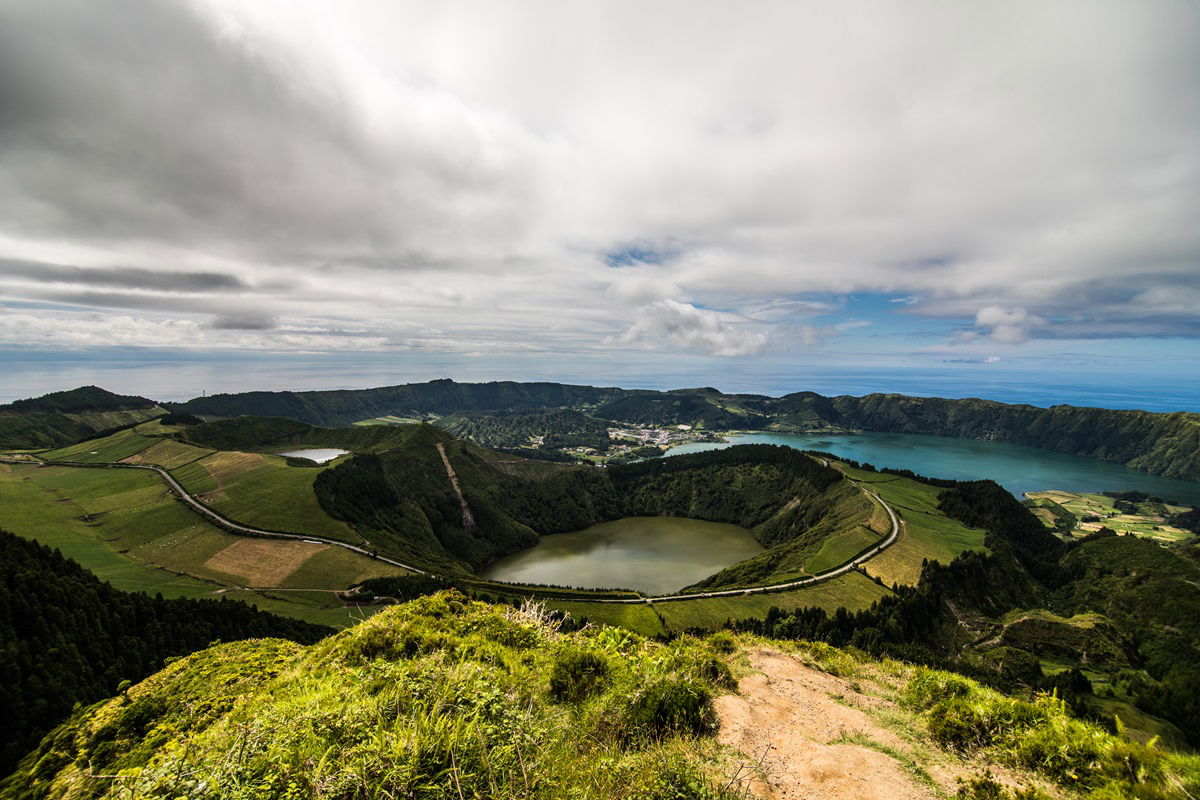
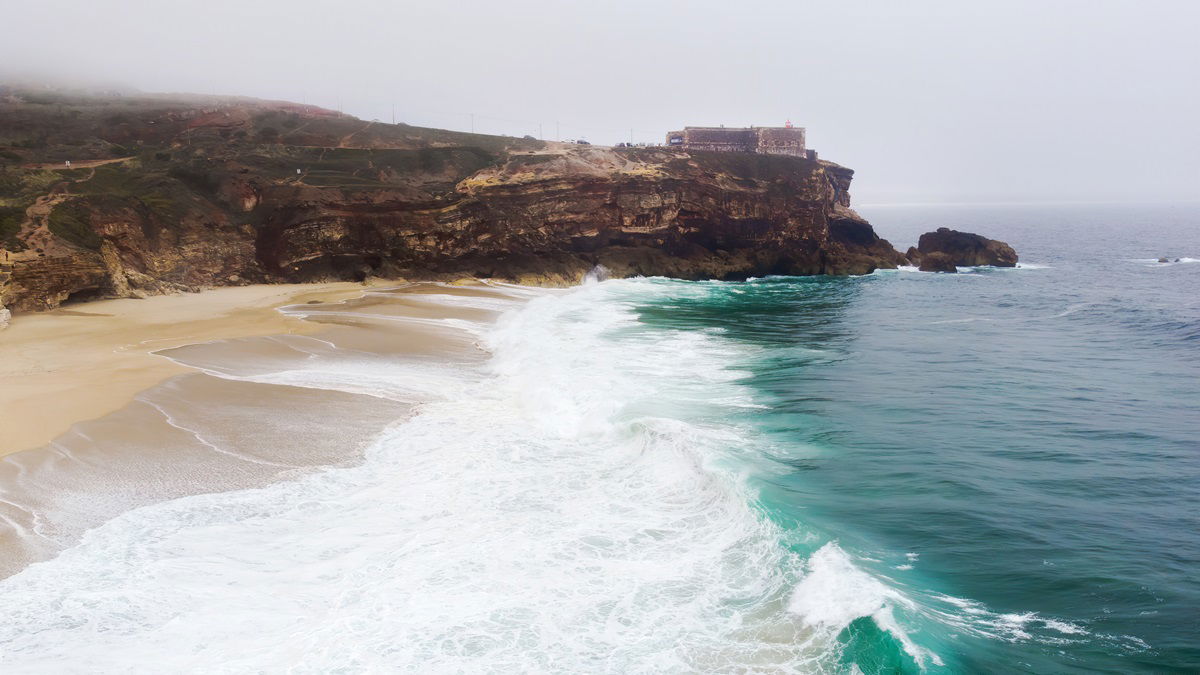
Infrastructure and driving
Portugal has a very well-developed infrastructure. The largest airports are located in Lisbon, Porto and Faro, while there are also smaller airports throughout the country for domestic flights. And the archipelagos of the Azores and Madeira also have airports. There is also a well-developed bus and rail network on the Portuguese mainland with long-distance buses and trains. You will also find metros and trams in the cities of Lisbon and Porto.
Driving
The mainland has a very well-developed road network. The rate of motorisation is also correspondingly high. Traffic drives on the right in Portugal. The road traffic code differs somewhat to that in Germany, so make sure you find out well in advance which rules apply to road traffic. You are usually allowed to drive 50 km/h in built-up areas, 90 km/h outside built-up areas and 120 km/h on motorways. With an EU driver’s licence, you are allowed to drive in Portugal and in the island regions of the Azores and Madeira.
Health and education system
Do you want to emigrate to Portugal or stay there for a longer time? Or are you emigrating with your family? Then the following information is important.
Health care
The health system in Portugal is called “Serviço Nacional de Saúde” (SNS for short) and is well developed. It is a state system that is mainly financed by taxes. This means that it is also available to the inhabitants of Portugal largely free of charge. EU citizens with a European health insurance card can also use it free of charge for up to 90 days.
Emigrants from the EU only need to register as a resident with the city or municipality in Portugal to be allowed to use the health system. As an emigrant, you need a permanent job for this. You will also have to register at a health centre. Here you will receive your Número de Utente, which you will need, for example, for doctor’s visits and in the pharmacy.
Statutory health insurance in Portugal covers primary care (such as routine check-ups, vaccinations, etc.), specialised treatments (such as examinations by specialist doctors) and preventive examinations. Prescription medication is also usually dispensed free of charge. You should note that, in rural regions, it may be difficult to find English-speaking doctors and pharmacies where English is understood.
Educational system
The education system in Portugal has undergone phenomenal change. The country climbed from the bottom of the PISA study to the upper midfield within a few years and even overtook its neighbour Spain. Huge investments were made in Portugal’s education system to effect this change. There are both state and private schools, although the state, and therefore free, schools these days have a significantly higher level of education. In Portugal, school attendance is compulsory from six to 18 years of age.
- Children in Portugal do not have to attend kindergarten or preschool. However, most children start pre-school education one year before school starts in preparation for primary school.
- Primary school consists of three cycles in which students have different subjects:
- The first cycle lasts four years, from the first to the fourth grade. Subjects taught are Portuguese, mathematics, science, English, art and sports. In addition, children can attend extra tutoring and homework support.
- The second cycle lasts two years, from the fifth to the sixth grade. Now students receive grades from one to five – but, unlike in Germany, five (excelente) is the best grade in Portugal and one (franco) is the worst. Additional subjects are now: other natural sciences, history, geography, computer science, moral and religious education and music.
- The third cycle lasts three years, from seventh to ninth grade. Pupils must now choose a second foreign language and additional subjects such as physics and chemistry are added to the curriculum.
- Secondary school then lasts another three years, from the tenth to the twelfth grade. The students now have to decide in which academic direction they want to go.
Housing and the costs of living
Rental prices in Portugal vary depending on where you want to live. In rural areas, it is very cheap to rent an apartment or house. Rental costs in Lisbon are the highest, followed by Porto. The ancillary costs are usually not included in the rent. The deposit is usually two months’ rent, just like in Germany. Leases in Portugal are often limited to one to five years. However, as an EU citizen, you can also buy real estate in Portugal without any problems. You can find suitable apartments and houses for rent or purchase on idealista or OLX.
The cost of living in Portugal is slightly lower than in Germany. Spending on food and eating out is significantly lower than in Germany. Utilities, internet and public transport are about the same price.
Emigrating to Portugal
Do you want to emigrate to Portugal? You can find more information in our article “Emigrating to Portugal” and "Working in Portugal".
Key data for Portugal
Population: 10.5 million
Size: 92,152 square kilometres
Capital: Lisbon
Regions: Norte (North), Centro (Centre), Oeste e Vale do Tejo (West and Tagus Valley), Grande Lisboa (Greater Lisbon), Península de Setúbal (Setúbal Peninsula), Alentejo, Algarve, Azores and Madeira
Currency: Euro (EUR)
Units of measurement: metric system (kilometres, metres, centimetres, etc.)
Official language: Portuguese
Road traffic: Right-hand traffic
German Embassy: Lisbon
Climate: Temperate-maritime
FAQs: Living in Portugal
Portugal wins many over with its mild climate, beautiful scenery and cheaper cost of living. However, you should also note that salaries in Portugal are significantly lower.
1000 euros is quite a tight budget for living in Portugal. If you live in a rural area in Portugal, you will pay around 500 to 700 euros for rent, plus living costs of around 500 to 700 euros.
Yes, life in Portugal is cheaper than in Germany in many aspects. Groceries and eating out are comparatively cheap. Rents are cheap in rural areas, but also more expensive in cities. Ancillary costs, such as electricity and water, internet costs and public transport costs are about the same price. Petrol prices are comparatively high.
You will be able to live relatively cheaply in the Portuguese countryside.
Northern Portugal is characterised by mountains that stretch all the way down into central Portugal. The south of the country is flatter with breathtaking coastal landscapes. Portugal also includes the two island regions of Madeira and the Azores. Madeira is also characterised by mountains and cliffs. The Azores are a volcanic archipelago.




